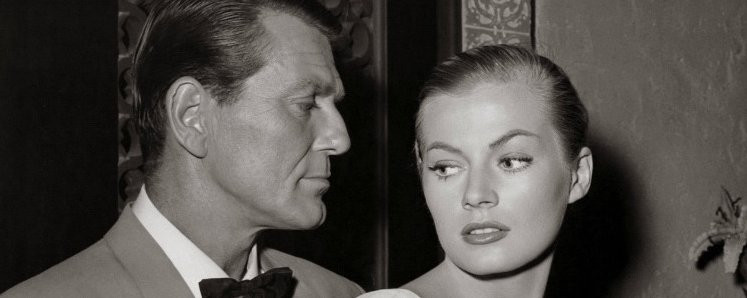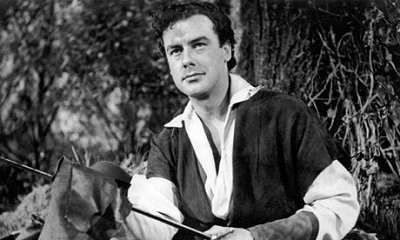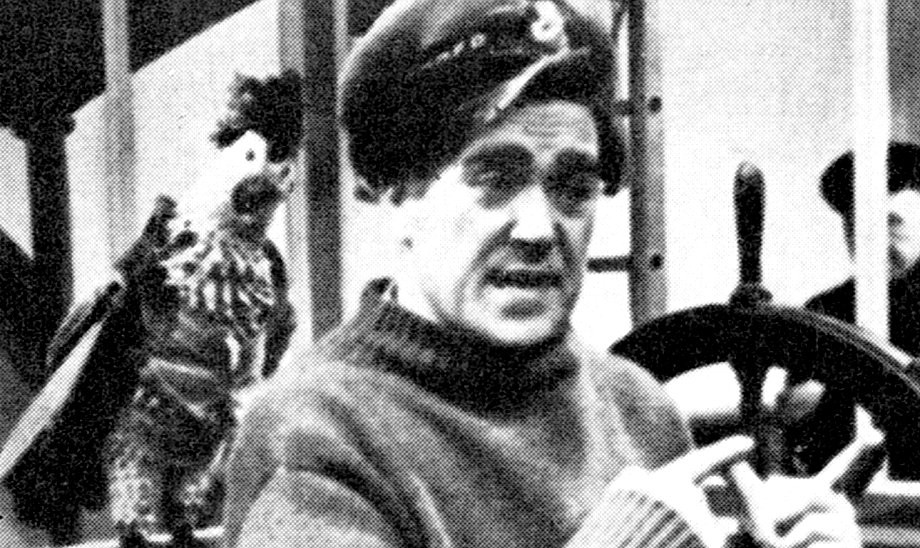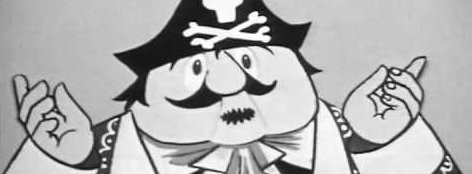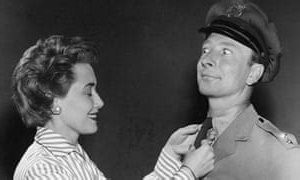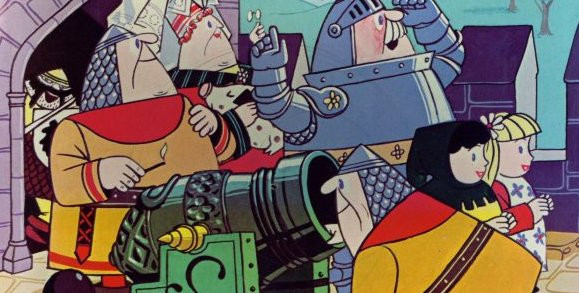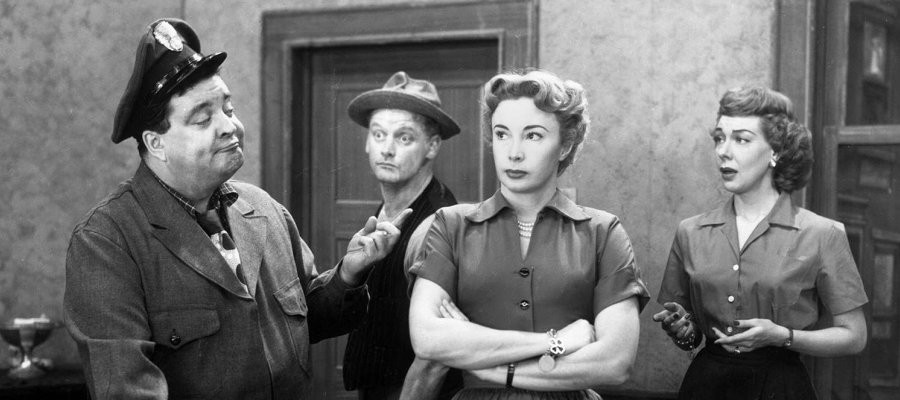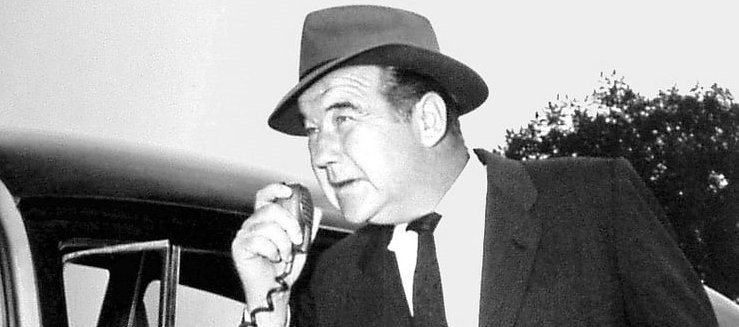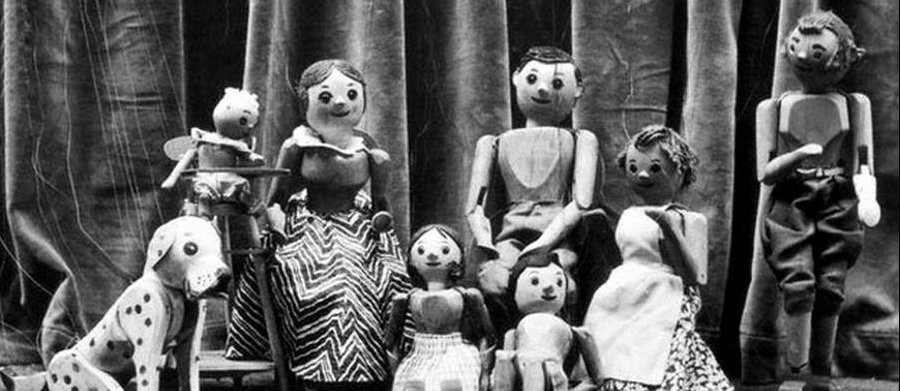
The Woodentops
1955 - United Kingdom"This is the story about the Woodentops. There's Mummy Woodentop and the baby, Daddy Woodentop, Willy and Jenny, the twins, Mrs Scrubbit, who comes to help Mummy Woodentop and Sam who helps Daddy Woodentop. And last of all the very biggest spotty dog you ever did see. And they all lived together in a little house in the country."
Debuting on BBC Television on 9 September 1955 at 3.45pm, The Woodentops was created by Freda Lingstrom and Maria Bird and became the regular Friday afternoon offering from Watch With Mother. The 26 15-minute episodes (last made in 1958) were repeated until 1973, which meant that more than one generation of children were familiar with the gentle music of the 22nd piece ('So lokka me over den myra' - or 'Calling the Cows Home') of the set of 25 Norwegian folk songs and dances for piano, Opus 17 by Edvard Grieg, that introduced the episode, before Bird gave the above introduction as the family sat patiently in front of a long curtain, ready to embark on their latest antics. Bird wrote the scripts as well as supplying the narration and Eileen Brown, Josefina Ray and Peter Hawkins provided the other voices. This was a break from the preceding WWM stories, which up until then did not feature character voices. The puppets – with their easily visible strings - were operated by Eileen Brown and Molly Gibson.
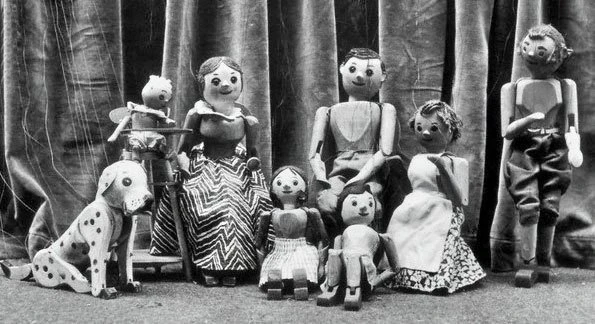
Like previous BBC puppet series, The Wooden Tops was filmed in a tin shed at the BBC's Lime Grove Studios, a complex built by the Gaumont Film Company in 1915 and acquired by the BBC in 1949 as a temporary measure until the building of the Television Centre at nearby White City. As it was, Lime Grove continued making programmes for forty-two years. By that time, the building was in such a state of disrepair that staff working there dubbed it "Slime Grove."

The Woodentops lived on a farm at an unspecified location - although it is worth noting that Daddy Woodentop spoke with a noticeable West Country accent. Despite being a working farm (one presumes) the only other animals, apart from Spotty Dog, that made regular appearances was Buttercup the cow and Dobbin the Donkey, and Sam the Farmhand was on -er, hand, to help with the daily chores. This was the closest that a children's puppet series had got to a life of simple domesticity. The aim of the programme was to teach pre-school children about family life, although one presumes that this family was distinctly middle class even by 1950s standards - not many families could afford a live-in domestic, a parlour room with a piano, and Mummy Woodentop (unlike Daddy) had a very clipped BBC accent. The piano did provide the opportunity for songs. Some written especially for the series and some more traditional ones that the young viewing audience could sing along with. The twins were very well-behaved children, although they did have an annoying habit of talking in unison or sharing dialogue.
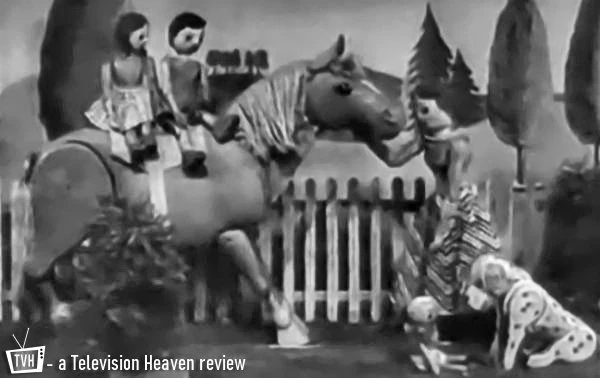
The stories were simply about a family engaged in day-to-day activities - there were no ne'er-do-wells, no dangerous situations, and no adventures to be had. It was life, Jim. But not as we know it.
After the series finished, the BBC preserved the puppets until 1983, when, along with Bill and Ben they mysteriously disappeared, no doubt stolen by someone who hadn't watched the series otherwise they'd have had far better morals. They were missing for a year before they were spotted on a shelf in Phillips' auction room in London by a member of the Blue Peter production team (who I hope was rewarded with a Gold Blue Peter Badge). Then in 2009, Mummy and Daddy made a triumphant return when they appeared in the video of the official BBC Children in Need Medley, which reached No.1 in the UK singles chart. Those Woodentops didn't allow this to go to their heads, though, and slipped quietly away into anonymity once more, no doubt Mummy returning to her parlour and Daddy to his turnip patch on the farm. Goodbye everyone. See you next week.

Seen this show? How do you rate it?
Seen this show? How do you rate it?
Published on June 25th, 2021. Written by Laurence Marcus for Television Heaven.


